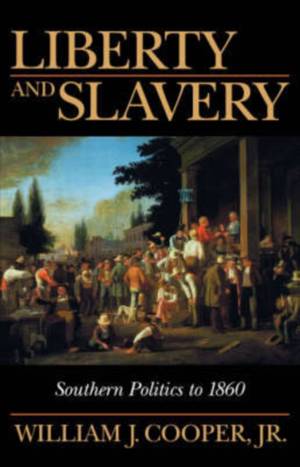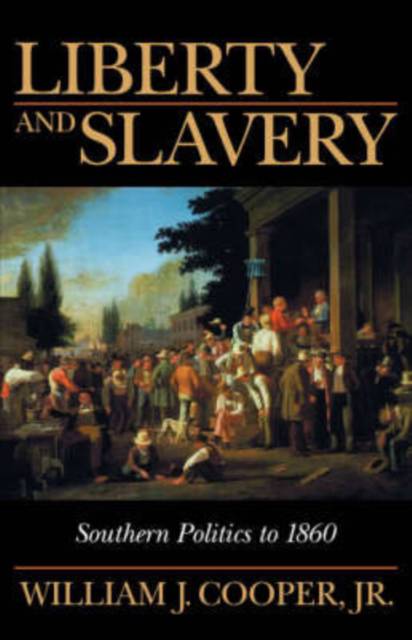
- Retrait gratuit dans votre magasin Club
- 7.000.000 titres dans notre catalogue
- Payer en toute sécurité
- Toujours un magasin près de chez vous
- Retrait gratuit dans votre magasin Club
- 7.000.0000 titres dans notre catalogue
- Payer en toute sécurité
- Toujours un magasin près de chez vous
Description
Explores the South's paradoxical devotion to liberty and the practice of slavery
The recipient of high praise--and considerable debate for its provocative thesis--William J. Cooper, Jr.'s sweeping survey of antebellum southern politics returns to print for classroom and general use with this new paperback volume. In Liberty and Slavery Cooper contends that southerners defined their notions of liberty in terms of its opposite--slavery. He suggests that a jealous guardianship of the peculiar institution unified white southerners of differing economic, social, and religious standing and grounded their debates on nationalism and sectionalism, agriculture and manufacturing, territorial expansion and Western settlement. Cooper assesses how the South's devotion to liberty shaped its response to major legislation, judicial decisions, and military actions, and how abolitionism, in the eyes of white southerners, threatened the destruction of local control and the death of liberty.
Spécifications
Parties prenantes
- Auteur(s) :
- Editeur:
Contenu
- Nombre de pages :
- 320
- Langue:
- Anglais
Caractéristiques
- EAN:
- 9781570033872
- Date de parution :
- 31-10-00
- Format:
- Livre broché
- Format numérique:
- Trade paperback (VS)
- Dimensions :
- 140 mm x 216 mm
- Poids :
- 376 g

Les avis
Nous publions uniquement les avis qui respectent les conditions requises. Consultez nos conditions pour les avis.






